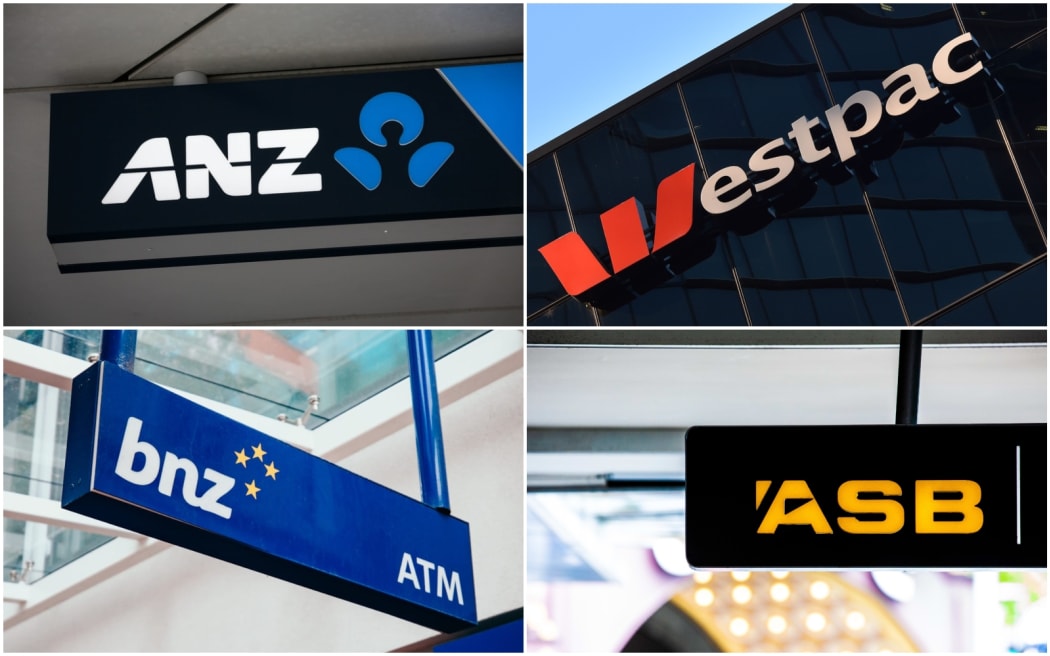
ANZ remained the biggest bank with more than $193b in assets, with BNZ second, followed by ASB and Westpac. Photo: RNZ
Bank profits are holding at near-record levels, but may be showing the first signs of a slowing economy.
Collective profits for the sector were $1.77 billion for the three months ended December, fractionally below the previous quarter, with modest growth in lending and margins and a hint that bad debts may start rising.
Industry profit was 9.7 percent higher than the same period a year earlier, and a report released in March showed collective industry profits for the year ended December was a record $7.2b.
Head of banking at the advisory firm KPMG, John Kensington, said the banks were strong performers at the end of the year - but the profit growth has slowed and may have peaked.
"It may be that record profits are now behind us as the sector, like the rest of the economy, faces continued high inflation, an [Official Cash Rate] that continues to rise, house prices that many believe have yet to bottom out and the distinct possibility of a recession."
The growth in banks' net interest income - the difference between borrowing and lending costs - slowed to 4.5 percent, still reflecting borrowers rolling off historically low fixed interest rates.
Bank lending margins increased on average by 10 basis points, but there was a marked drop in the amount of non-interest income because of lower fees and commissions.
Operating expenses and the level of bad and doubtful debts were little changed, but Kensington said the banks would likely be setting aside more as household budgets become squeezed, struggling with higher interest rates.
Kensington said the survey was a bellwether of conditions to come with growth flattening out, credit demand slowing and risks rising.
He expected the banks would feel the pinch across their business.
"There'll be some bigger shocks coming out of the corporate loan book where an industry or bigger play gets into trouble, and there'll be some general provisioning across the consumer book - especially mortgages, which may see them let people go interest-only, which will allow them to ride out the rise, the plateauing and then the fall in interest rates."
ANZ remained the biggest bank with more than $193b in assets, with BNZ second, followed by ASB and Westpac. The biggest locally owned bank was Kiwibank, in fifth.
Kensington said there were few worries that New Zealand banks would get caught up in the sort of sector turmoil seen recently in the US and Switzerland, given they had different make up of their businesses and were strongly capitalised.




